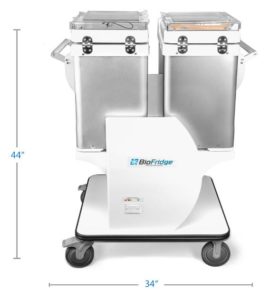How to Manage Blood when in Short Supply?
Managing blood supply is a crucial issue. Ensuring a stable stock of blood for patients in need of it is often a difficult task, especially during difficult circumstances. These difficult circumstances such as natural disasters, pandemics and other environmental calamities, do in fact, demand for more blood supply. However, these conditions themselves make it difficult to collect blood.
After a slight lull in severity, there is a definite rise in the number of COVID 19 cases yet again. Hence, it is vital to make necessary arrangements on the medical front. Social distancing, fear of contracting the virus, or the possibility of global lockdowns will thwart blood donation and collection efforts.
Inventory Management
Being prepared for the worst-case scenario involves ensuring adequate supply of blood, vaccines, medication as well as other vital medical components. Hospitals often undertake inventory management by checking whether the medical components are in stock, placing orders for those components that are running short, checking the expiry dates of the components and so on.
Management of blood supply and inventory is quite challenging as blood has a comparatively short shelf life. Improper management can lead to severe wastage of a valuable, life-saving resource.
Effective blood management includes usage of blood components that are close to their expiry dates before freshly delivered blood. This can help reduce wastage of blood.
Another measure could include placing limits on blood utilization based on the urgency of the situation. This means that surgeries or medical procedures that are not urgent or life-saving could be held off or cancelled, especially if they require blood transfusion.
Blood Transportation
Once a hospital or blood bank acquires blood, it is important to store it appropriately to protect its efficacy. The first stage of blood storage is to break it down into its individual components (plasma, platelets, etc) and then save these at the FDA recommended temperatures (Read more about effective storage of blood components).
By its very nature, blood involves a lot of transportation, from donor to blood bank and finally to the blood recipient. Blood components are best stored in a medical grade refrigerator which can effectively maintain the necessary temperatures.
Maintenance of appropriate temperatures, protection from light and environmental factors as well as other safety measures need to be maintained even during transportation. Having sturdy and trusty portable medical refrigerators and freezers such as the ones by Biofridge can help make the transportation process easier for medical professionals.
They are manufactured specifically for medical usage and are packed with features such as built-in alarm systems that send out notifications related to temperature excursions or any other alarming event. Their stainless-steel hardware makes them sturdy and travel-friendly.
Call 760-233-8847 now to speak to our representative who will be able to guide you on which product will be the best fit for your business.
Sources:



